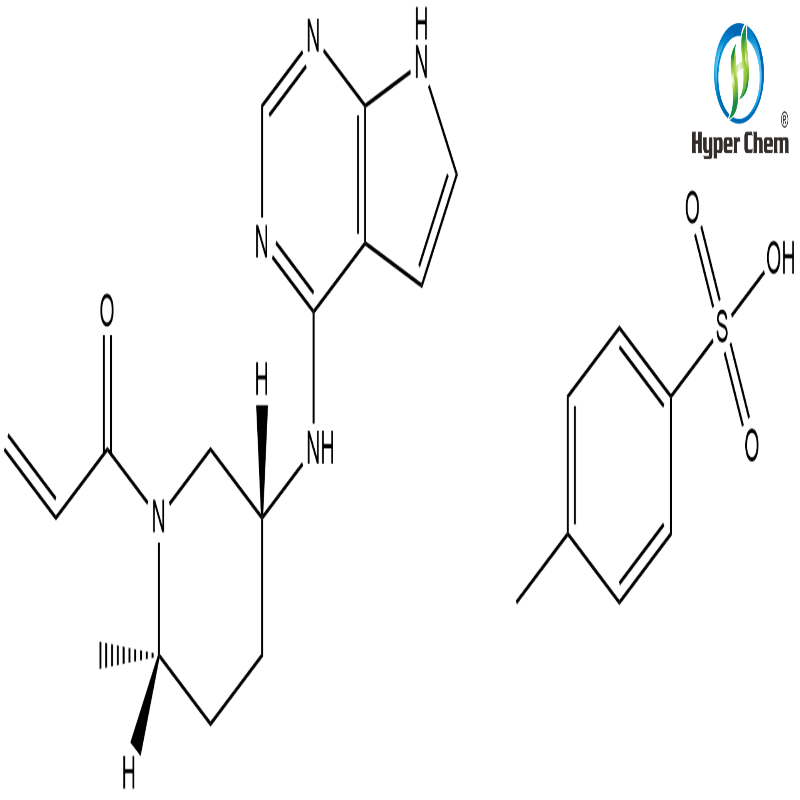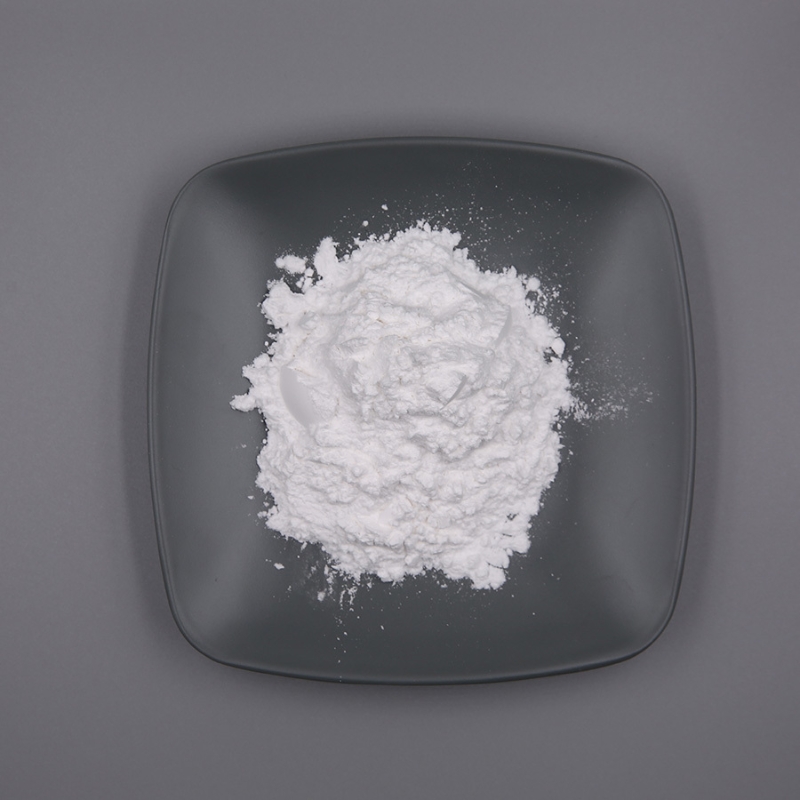Nature's Gobbo/RaoZi and the team revealed new mechanisms for TB escape and immunity against TB.
-
Last Update: 2020-07-22
-
Source: Internet
-
Author: User
Search more information of high quality chemicals, good prices and reliable suppliers, visit
www.echemi.com
Tuberculosis (TB) is caused by Mycobacterium tuberculosis (MTB) infection. It is one of the most widespread bacterial diseases in the world. It is still one of the top ten causes of death in the world.MTB is a kind of intracellular pathogen, which mainly inhabits in the host macrophages after infection.as the first line of defense of the body, macrophages can mediate and regulate their own and other cell apoptosis to achieve their immune regulation, immune killing and pathogen clearance.however, MTB can escape from the host's anti tuberculosis immune process through various ways, and can spontaneously exist in macrophages and propagate [1,2].therefore, it is crucial to understand the pathogenic mechanism and immune escape mechanism of Mycobacterium tuberculosis.as far as the current research is concerned, the mechanism of MTB immune escape and survival and colonization in macrophages is mainly manifested in the following two aspects: 1 It can resist the innate immune killing effect of macrophages, including inhibiting the fusion of phagosome and lysosome, inhibiting the apoptosis of macrophages, changing the metabolic pathway to escape the killing effect, and eliminating the killing of reactive oxygen intermediates (ROI) and reactive nitrogen intermediates (RNI). Br / >, and the immunosuppressive effect of IFN on macrophages was also observed.in recent years, studies have found that many other pathogens can use the ubiquitination system of the host to promote their own pathogenesis. Is this mechanism also applicable to MTB? On January 15, 2020, Professor Ge Baoxue of the lung Hospital Affiliated to Tongji University and the academician team of Shanghai University of science and technology published the title "host mediated ubiquitination of a mycobacterial protein suppresses" in nature It was found for the first time that rv0222 secreted protein, an important virulence factor of Mycobacterium tuberculosis, could recruit anti-inflammatory protein molecules only after k-11 ubiquitination modification catalyzed by host ubiquitin linker anapc2, thus blocking host anti-tuberculosis immune pathway, thus revealing a new mechanism of Mycobacterium tuberculosis infection and treatment.the researchers first detected the secretory proteins and lipoproteins of 208 Mycobacterium tuberculosis strains that affected the activation of NF - κ B to identify the proteins that could inhibit the host inflammatory response.among these proteins, rv0222 (a serological diagnostic indicator of tuberculosis) has been shown to inhibit the activation of NF - κ B.subsequent experiments showed that rv0222 is the main virulence factor of MTB. Rv0222 can inhibit the activation of TRAF6 by promoting the binding of SHP1 / 2 and TRAF6, thus inhibiting the activation of MAPK and NF - κ B signaling pathways, and then inhibiting the inflammatory response induced by MTB.it is known that TRAF6 is a typical E3 ligase, which can promote the polyubiquitination related to the 63 lysine residue (k63 position) of multiple signal molecules. Is the interaction between rv0222 and TRAF6 related to ubiquitination in host cells? Further experimental results confirmed that the host E3 ubiquitin ligase anapc2 (a core subunit of late cell cycle promoting complex / cell cycle body) could interact with Mycobacterium protein rv0222, and promote k-11 related ubiquitin chain and rv0222 The binding of k76 site promoted the recruitment of tyrosine phosphatase SHP1 protein to TRAF6 ligand protein, prevented the ubiquitination of k63 and the activation of TRAF6, and then inhibited the expression of proinflammatory cytokines.inhibition of anapc2 expression by shRNA can counteract the inhibitory effect of rv0222 on proinflammatory response; in addition, the mutation of ubiquitination site on rv0222 can destroy the inhibition of the protein on host proinflammatory cytokines, thus reducing the toxicity of MTB in mice during infection.to sum up, the research work has completely expounded the immune escape mechanism of Mycobacterium tuberculosis using host components to resist host attacks, and pointed out that rv0222 virulence protein only exerts its virulence after k-11 ubiquitination modification at k76 site, which broadens our understanding of ubiquitination system in infectious disease regulation, so as to provide references for the development of new anti tuberculosis drugs For more accurate targets.it is reported that Dr. Wang Lin, Affiliated Shanghai Pulmonary Hospital of Tongji University, Wu Juehui, master of medicine of Tongji University, and Li Jun, associate researcher of the Institute of immunochemistry of Shanghai University of science and technology, are the co first authors of the paper; Rao Zihe, distinguished professor of the Institute of immunochemistry of Shanghai University of science and technology, and Professor Ge Baoxue, Professor of Shanghai Pulmonary Hospital Affiliated to Tongji University and School of medicine of Tongji University He is the corresponding author of the paper.Professor Ge Baoxue is currently the director of Shanghai Key Laboratory of tuberculosis (tuberculosis). The laboratory is a municipal key laboratory approved by Shanghai Municipal Science and Technology Commission in 2004. Relying on Shanghai Pulmonary Hospital, it carries out basic and clinical translational medicine research on tuberculosis prevention and treatment.related reading: two articles of Shanghai University of science and technology focusing on anti tuberculosis drug targets and human cannabinoid receptor; science based on the development of anti tuberculosis drug targets, Rao Zihe and academician team spent many years analyzing the atomic resolution structure of Mycobacterium respiratory complex iii2iv2sod2; NAT New progress has been made in the research on the pathogenesis of tuberculosis by the Ge Bao science group of Tongji University; new TB susceptibility genes have been found by Nat comm; new TB inhibitors have been found through large-scale drug gene target screening; science | antibiotic subcellular localization reveals the mechanism of anti tuberculosis; NAT micro| The team of Ge Baoxue revealed that the sulfur redox molecular characteristics of Mycobacterium tuberculosis secreted proteins could be recognized by host protein kinases, thus activating anti tuberculosis immunity; NAT comm Liu Cuihua group revealed the molecular mechanism of Mycobacterium tuberculosis surface protein recruiting ubiquitin to trigger host allogeneic autophagy; link: 1. Zakaria HMA, Sandra PE ó A-D í AZ, Sunil Joseph, yossef AV gay Immunoevasion and Immunosuppression of the Macrophage by Mycobacterium Tuberculosis. Immunol Rev, 2015, 264 (1), 220-32.2. Adriano Queiroz, Lee W Riley. Bacterial Immunostat: Mycobacterium Tuberculosis Lipids and Their Role in the Host Immune Response. Rev Soc Bras Med Trop, 2017, 50 (1), 9-18.
This article is an English version of an article which is originally in the Chinese language on echemi.com and is provided for information purposes only.
This website makes no representation or warranty of any kind, either expressed or implied, as to the accuracy, completeness ownership or reliability of
the article or any translations thereof. If you have any concerns or complaints relating to the article, please send an email, providing a detailed
description of the concern or complaint, to
service@echemi.com. A staff member will contact you within 5 working days. Once verified, infringing content
will be removed immediately.







